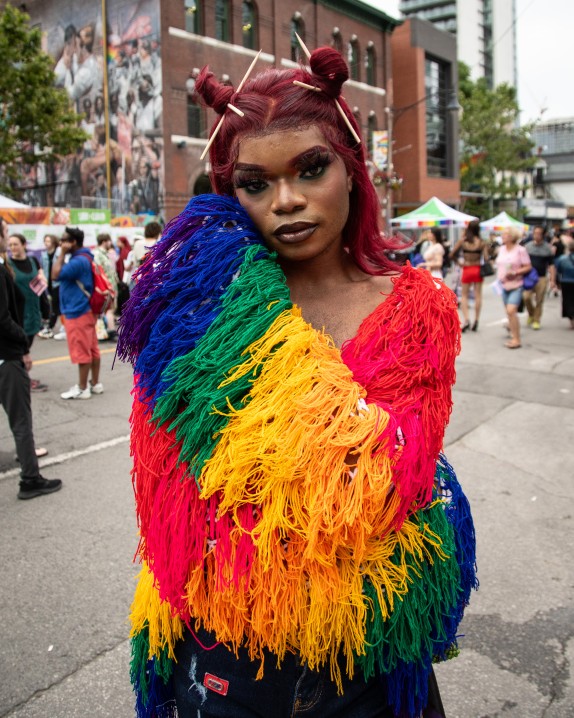
Jorge Kizzy/
Canada, Justin Anantawan, Uganda
“Last year February 16 I got arrested from my home in Uganda on the reasons of being Queer.”
READ THE STORY
“Last year February 16 I got arrested from my home in Uganda on the reasons of being Queer.”
READ THE STORY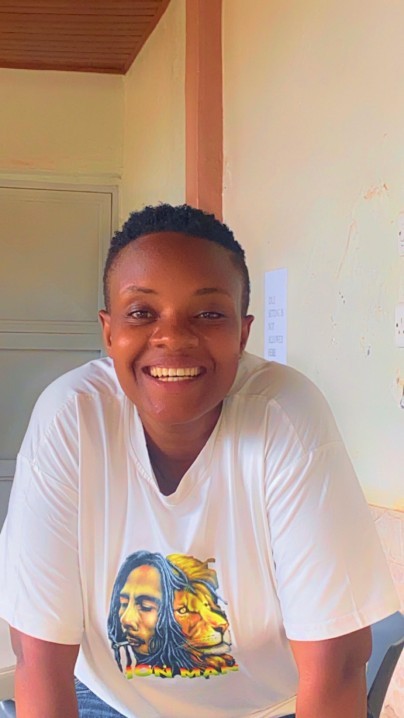
“Time is now, no one will speak for your rights if you don’t speak up”
READ THE STORY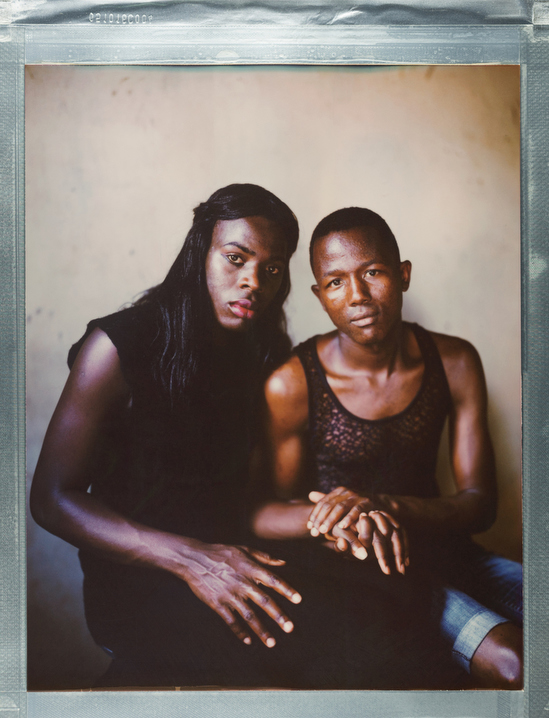
“Then our family got to know about it through the social media and newspapers. So we were ashamed in the community”
READ THE STORY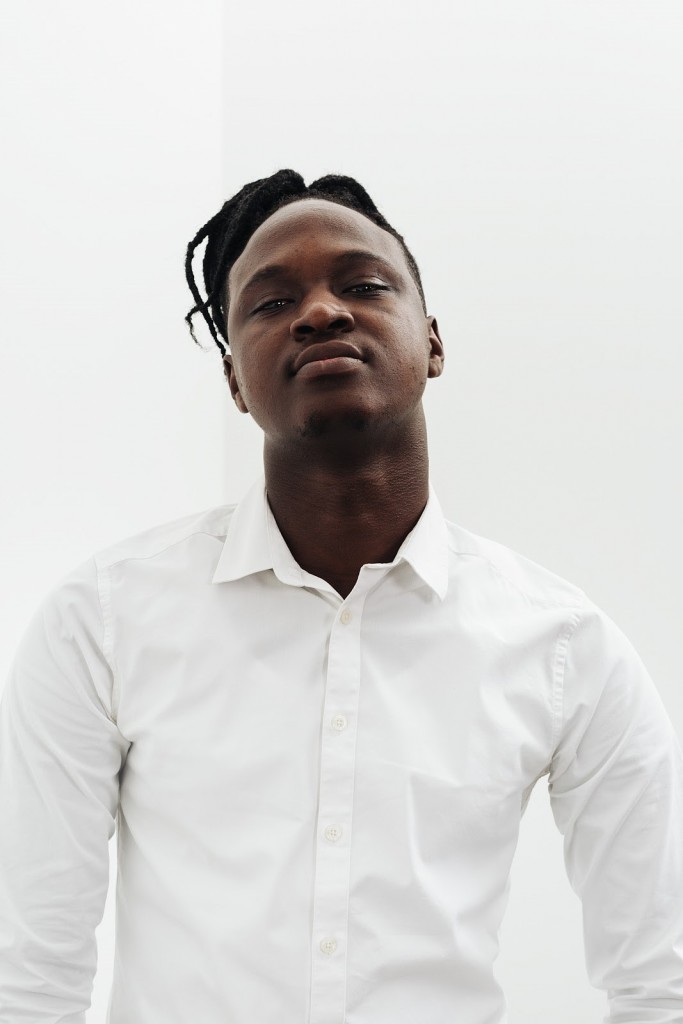
“In Uganda there is currently not a single Safe Housing project left…With five euros we could feed someone for three weeks, with ten euros we could buy a mattress. It doesn’t take countless donors, but just a few to rebuild a safe house.”
READ THE STORY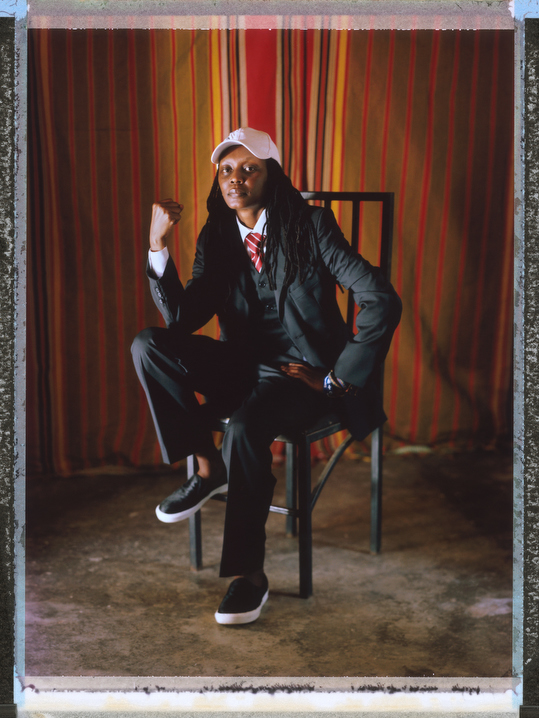
“I dream of the day I will wake up and walk my dog in the neighborhood and not have to fear to be attacked.”
READ THE STORY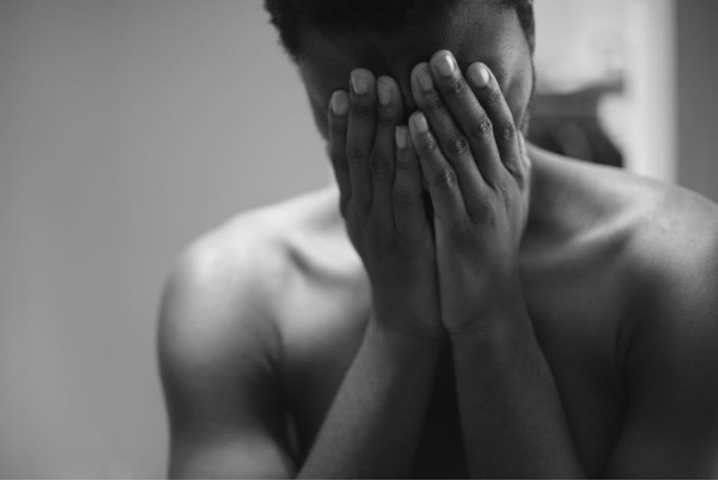
“But my older brother wouldn’t accept it, and one evening he called some friends and they dragged me out of the house on to the street, hit me and souted to the entire village ‘Joel is gay’.”
READ THE STORY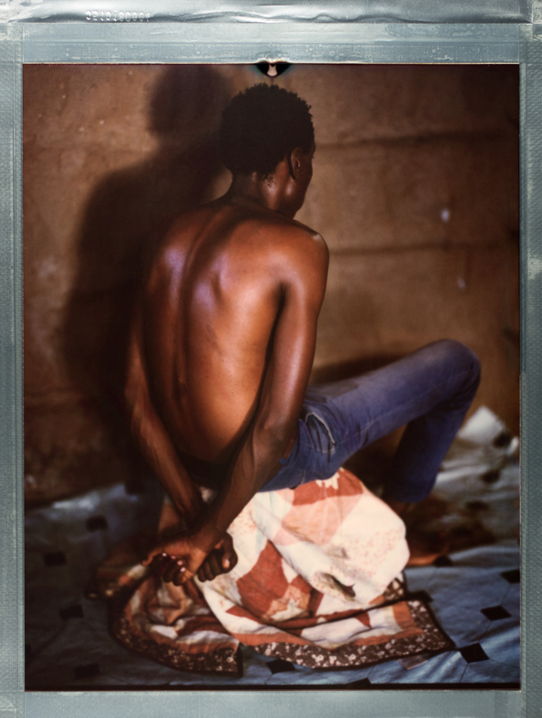
“They took me to the village, in a mud house, they locked me up, and called me a devil. That a devil’s supposed to be locked up. They left me there.”
READ THE STORY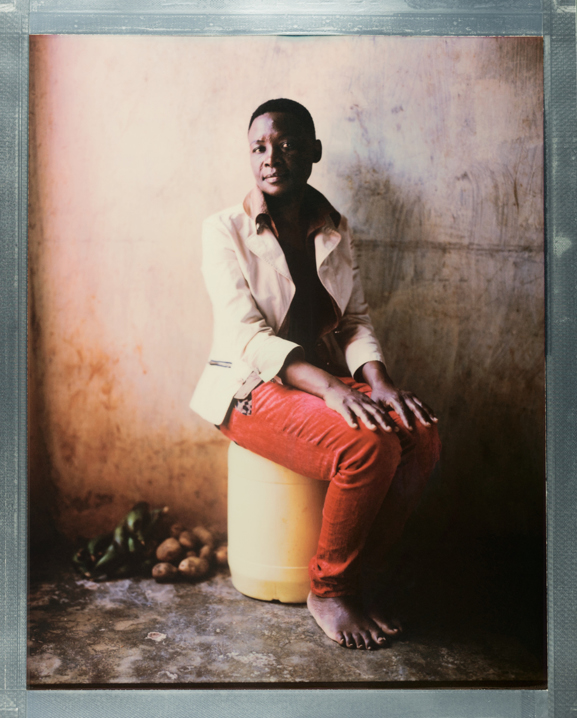
“My family even promised to kill me. They can’t even look at me after knowing that I am a lesbian. Even the villagers were told to just kill me in case they saw me anywhere. That is why I decided to run away.”
READ THE STORY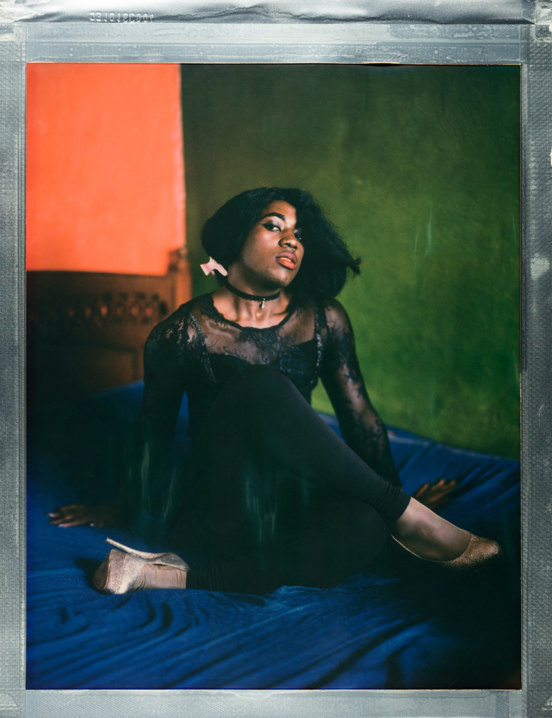
“My family continued to look for me. They also went to the radio station. They say that whoever sees me they should contact them or to kill me. That’s when I ran to Nairobi in 2015.”
READ THE STORY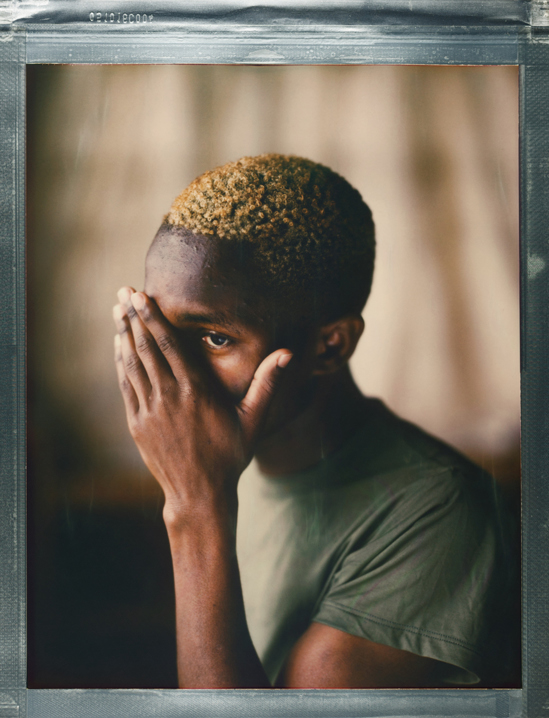
“it was a bus for the Kakuma camp in Turkana county, a land of misery, a land of thirst, a land of no hope. I suffered from worry, stress, and trauma. I thought I would die, my health was bad, I had no right of speech.”
READ THE STORY![A posed portrait of Jonah, an LGBTI Ugandan refugee, who lives in Nairobi and is supported by Nature Network. After Jonah’s uncle, who he lived with, discovered Jonah is gay, he attacked him. “My uncle came to our room, dragged me from the bed. On top of his voice, saying I'm a disgrace, I'm a curse, I'm a criminal that needed to be killed. He went to the kitchen, and got a big wood, and started beating me with it. I bled. He campaigned other people to beat me up, and here, some neighbors came to rescue me, 'cause they wouldn't let me be killed in the neighborhood.” Like many refugees in Nairobi, Jonah relies on financial and medical support to survive, however he cannot survive on the amount given by the UNHCR. “The challenges I face here in Kenya , we happen to be given the 4500KSH [about 45USD] every month which happen to be not enough, 'cause the life of living in Kenya is a bit expensive, so people tend to engage in sex work as a way of generating income to supplement on the money being given. We have a problem of health. When someone falls sick, and the way the UN guys respond to it, it's on a slow pace, 'cause you have to email to them, go to the UN offices a couple of times, and you know all during that time, you're in pain, and they keep on giving the appointments, so if it's not amongst your friends to mobilize and get you money, and you be treated, some of our friends have died. I have a couple of friends who are passed on, and then, my other problems are, since so many people have been engaging in sex work, so many of them have been infected, and a number of them have died of AIDS.” Kenya, October 2017.
Nature Network is a Nairobi based organization providing LGBTQI+ refugees in Kenya with support through safe temporary housing, health services, food and security. Nature Network has advocated to police over 50 times, responding to hate crimes, and runs a WhatsApp group of safety tips. Refugees supported have come from Uganda, Somalia, Burundi, Rwanda and Sudan.
Stigma, discrimination and violence based on sexual orientation means that access to HIV services is yet another challenge for this community. As a result, LGBTQI+ people in Africa are 19 times more likely to be living with HIV, with prevalence rates in many countries exceeding 10-20%. To respond to this, the Elton John AIDS Foundation (EJAF) built a quick, nimble, and easily accessible $10m fund which can get money to the most effective grassroots organisations doing some of the most important work among the most-at-risk LGBT groups in Sub-Saharan Africa. A Rapid Response mechanism administered by the International HIV / AIDS Alliance quickly disburses smaller sums to respond to emergencies where LGBT people are in jeopardy. The fund is active in 30 countries and Nature Network in Kenya is one project that has received the fund.
Robin Hammond/NOOR for Witness Change](https://whereloveisillegal.com/wp-content/uploads/2018/07/LGB20171101P_KEN_001.jpg)
“I prefer not to use real name, because people who are trying to kill me are still looking for me. I’m an LGBTI Ugandan refugee living in Nairobi.”
READ THE STORY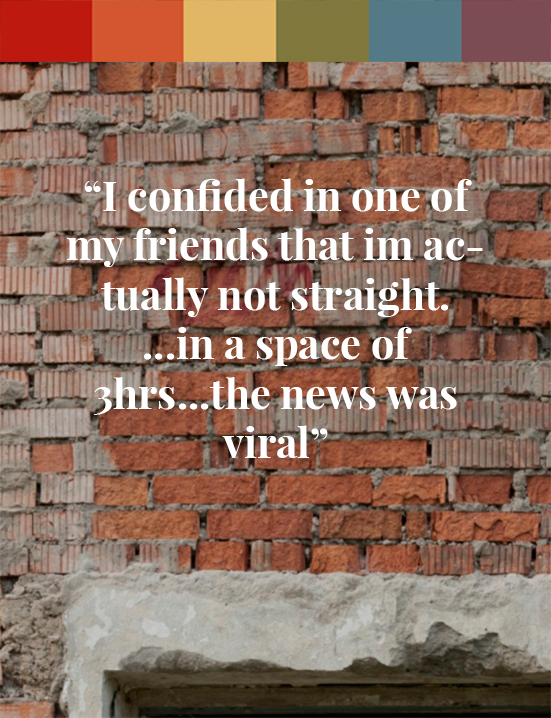
“I confided in one of my friends that im actually not straight. …in a space of 3hrs…the news was viral……I got hate texts,mockery videos,she got everyone to turn against me…my family found out……I got a breif weekend break from volunteering went home….they tried to an exorcism.”
READ THE STORY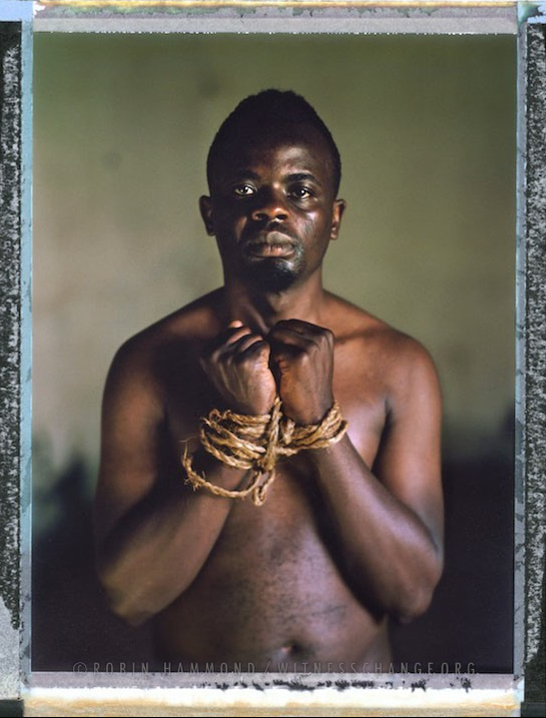
“I have been tortured several times by homophobic people and police officers… I can’t forget when I was raped in the police cell by prisoners, after all that I decided to start an organization with some campus students. I also appeared in local newspapers as a promoter of homosexuals so right now it’s hard for me to get a safe place to rent yet I am not working. I was fired from work because I am gay.”
READ THE STORY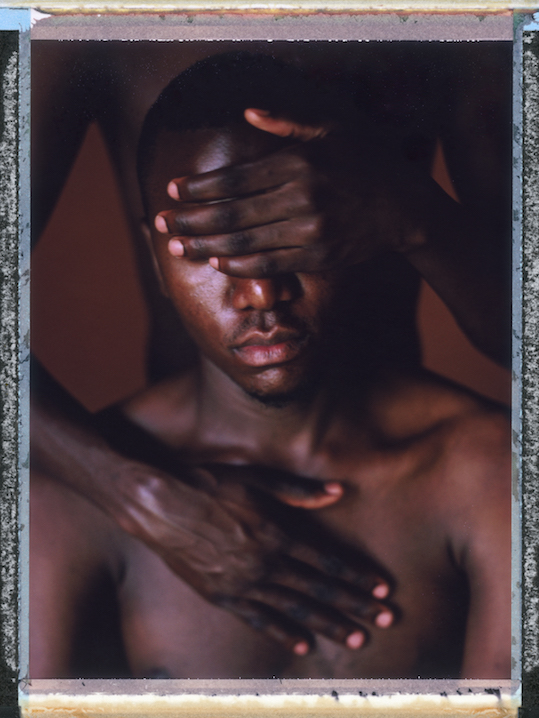
“We heard people stoning the door and windows while shouting, telling us to immediately leave the house because they were tired of us, claiming that we are curse to the village, and even to the teenagers in the village… After a while of storming the door, it broke and we were pulled out, thrown on the ground, beaten and flogged for almost an hour. We were half dead.”
READ THE STORY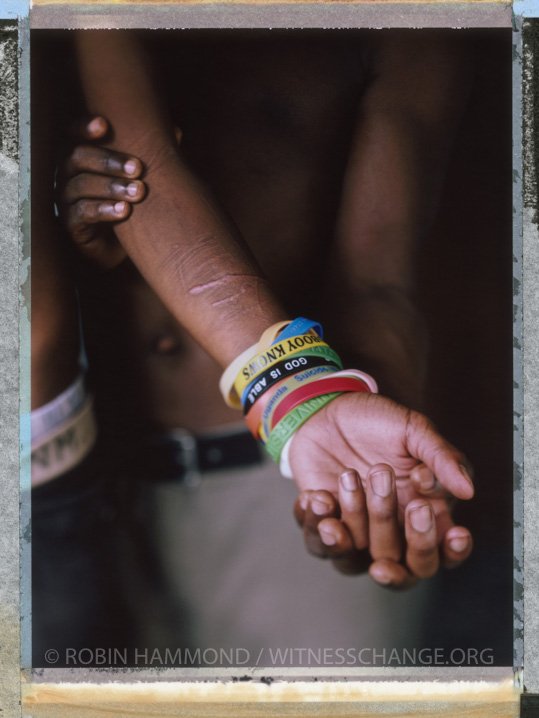
“When I hear those hate words that homophobic people keep saying about gay people, I really get angry because it feels indirectly that they are saying or referring to me coz I am one of those gay people they are hating on.”
READ THE STORY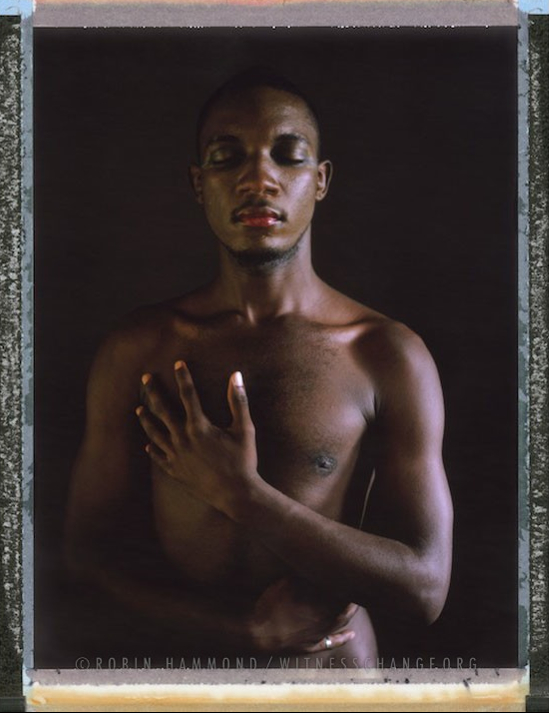
“Things worsened when my face appeared in newspaper on the front page. I started receiving phone calls threatening me from different corners that they are going to kill me and my land lord threw me out that he doesn’t entertain gay people. I became a security threat to my friends and to my organization where I work from.”
READ THE STORY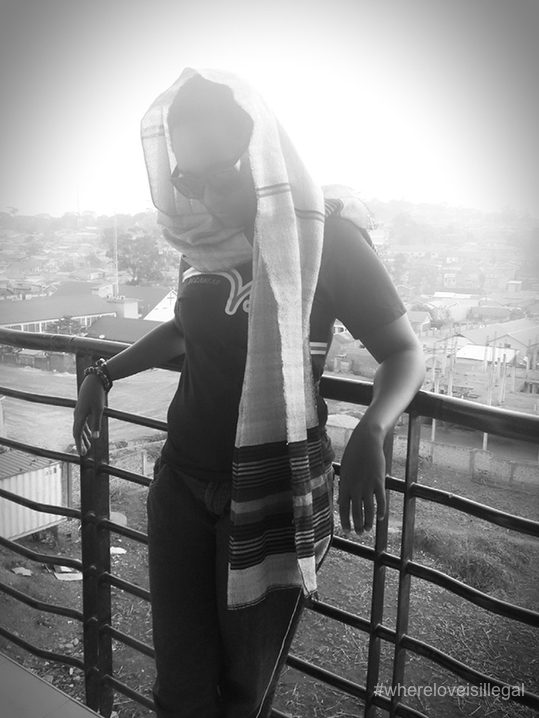
“‘But are you even a girl?’ My father asked me, one night, drunk, with disgust in his eyes. He had finally mustered the courage to tell me how he truly felt about me…”
READ THE STORY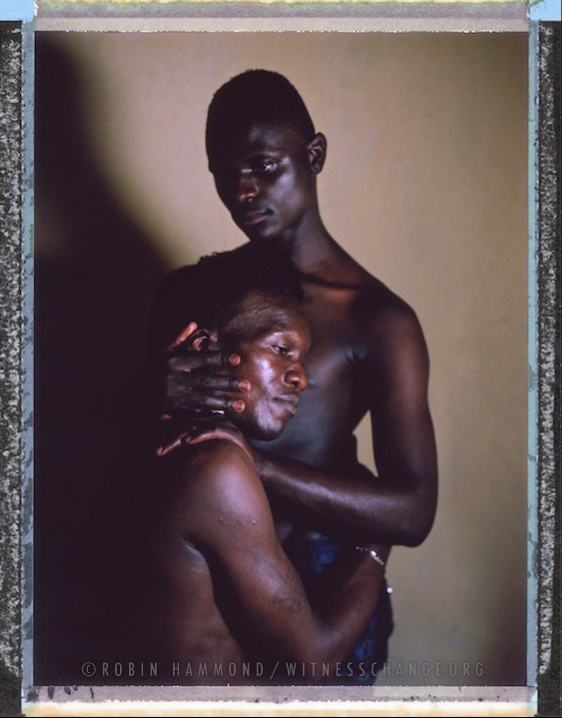
“We spent seven months there (in prison) and we came out but we are suffering a lot and we are not feeling well about the society.”
READ THE STORY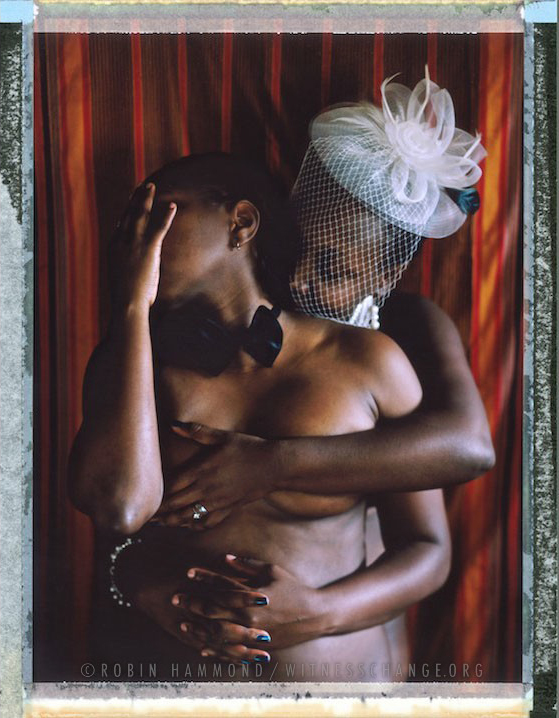
“You need to be raped to rid of your stupidity of liking a fellow girl.”
READ THE STORY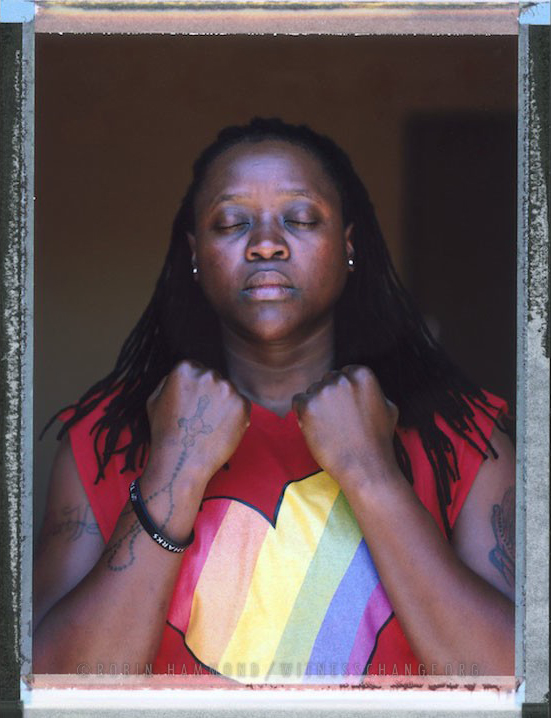
“The world we sit with, we Kuchus, can be hurt, they beat you, attack you, rape you… But even with all this I have lived to be recognized as a leader, rugby player and a feminist who will continue to fight until all of us are see equal.”
READ THE STORY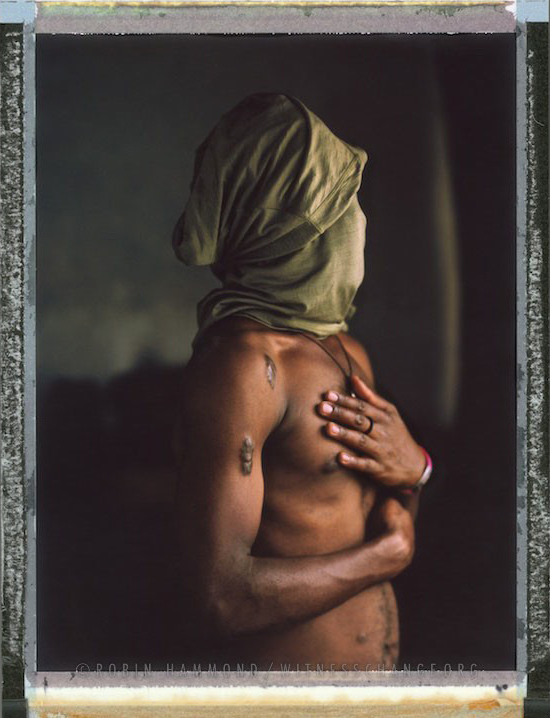
“The mob started beating us with stones and sticks with nails saying that we were curses and needed to be killed.”
READ THE STORY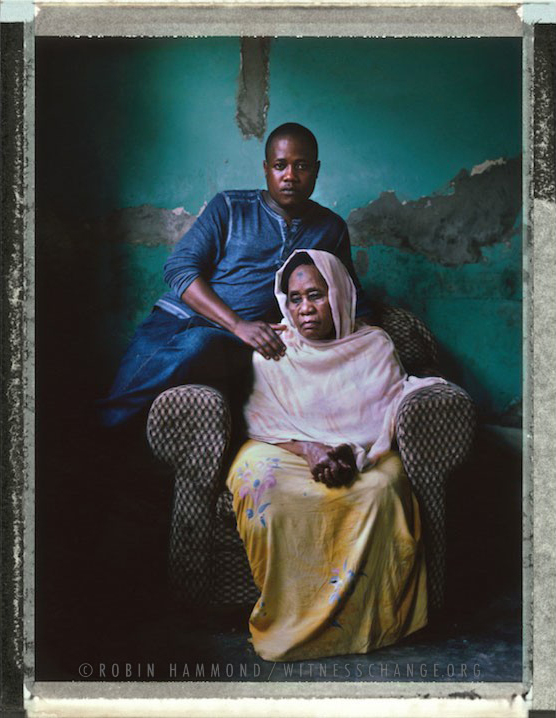
“I sometimes develop feelings of committing suicide because of this deep pain for whatever I went through.”
READ THE STORY“When you point a finger at someone, be mindful of who the other fingers are pointing at.”
READ THE STORY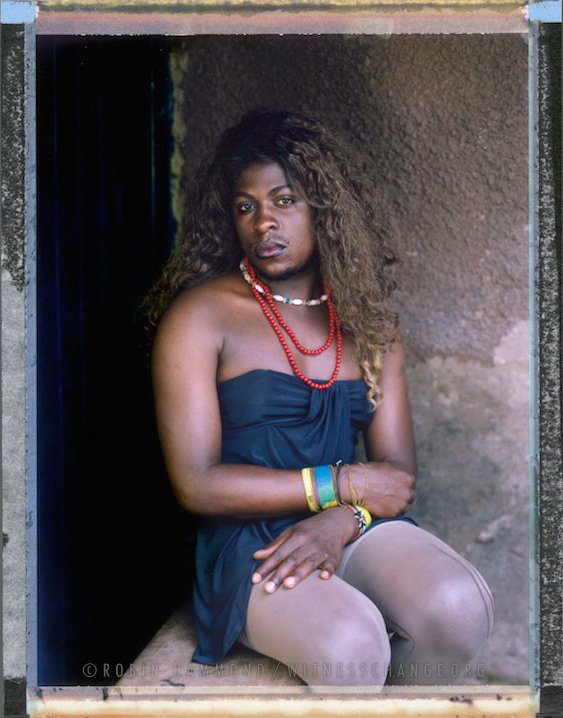
“My father asked me to leave his home if I don’t want to be killed.”
READ THE STORY“Waiting in vain for love from my family, my own mother subjecting me to ‘corrective rape…”
READ THE STORY“Why should someone else’s private life offend you and drive you to such anger and hatred?”
READ THE STORY“I was raped and the bad thing I got pregnant but I thank God that I was not infected with HIV.”
READ THE STORY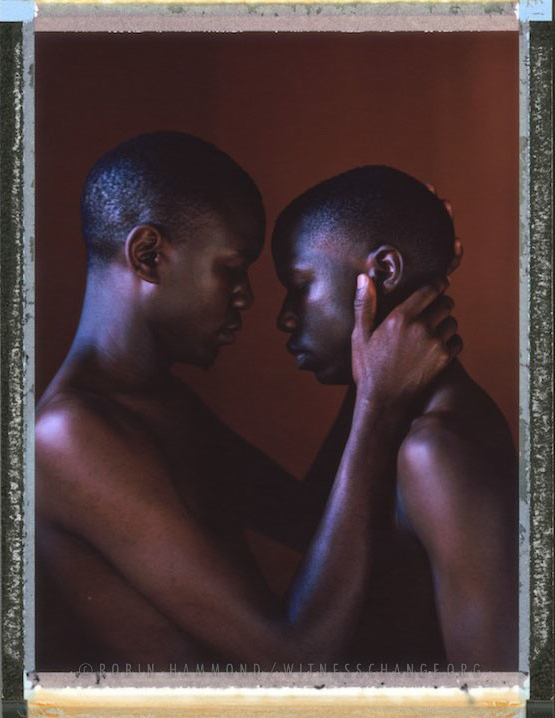
“Where was I to start from? How when the only person I trusted in the world turned her back on me? “
READ THE STORY